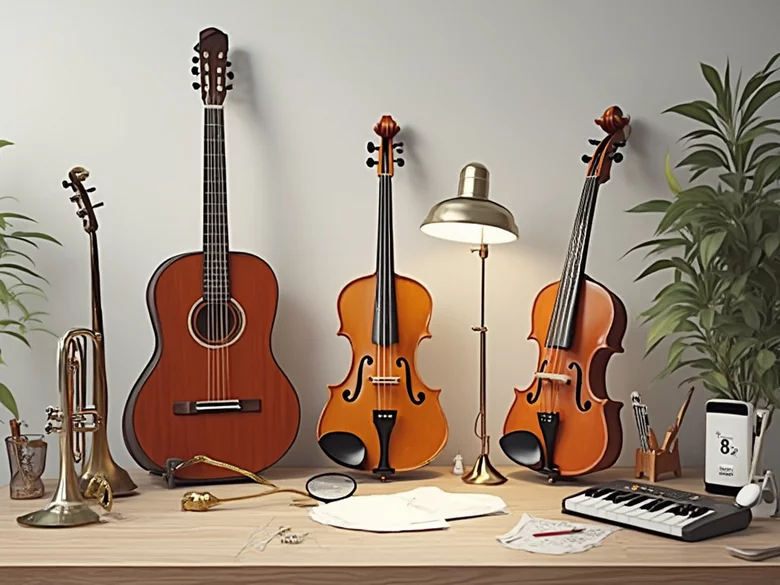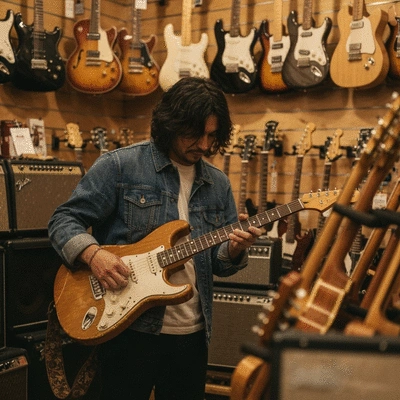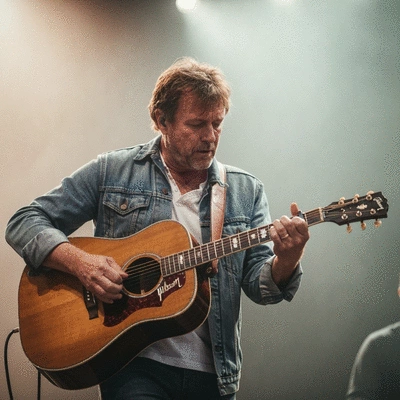Cost Savings & Value
Find high-quality instruments at a fraction of the new price. This frees up budget for accessories or lessons, making music more accessible.
- Lower upfront cost
- Potential for vintage finds
- Upgrade potential
Did you know that buying secondhand musical instruments can not only save you money but also contribute to a more sustainable world? Dive into the advantages of choosing pre-owned gear and how it can enhance your musical journey.
Discover the compelling reasons to opt for pre-owned musical instruments, from cost savings to environmental benefits. For those just starting their musical journey, understanding how to choose a beginner's musical instrument is a great first step.
Find high-quality instruments at a fraction of the new price. This frees up budget for accessories or lessons, making music more accessible.
Choosing used instruments helps reduce waste and minimize your carbon footprint, supporting a circular economy.
When it comes to musical instruments, choosing to buy secondhand can be a game changer for both your wallet and the environment! As a passionate musician, I’ve found that exploring the world of pre-owned instruments opens up a treasure trove of options that can enhance your musical journey. Let’s dive into why purchasing secondhand is a fantastic choice!
One of the biggest reasons to consider secondhand instruments is affordability. You can often find high-quality gear at a fraction of the new price. This means more budget for accessories or even lessons! Plus, many secondhand instruments come with their own unique character, often reflecting the stories of their previous owners.
Have you ever stumbled upon a vintage guitar with a fascinating story? These personal touches can make your musical experience even more special. Additionally, the variety available in the secondhand market often surpasses what you find in new stock, including rare vintage instruments in Australia!
Buying secondhand isn’t just a savvy financial move; it’s also an environmentally friendly one! By choosing used instruments, you’re helping to reduce waste and minimize your carbon footprint. This is increasingly important as we face global challenges around sustainability.
It’s amazing to think how your love for music can also contribute to a healthier planet. Every time you opt for a secondhand instrument, you’re making a choice that supports sustainability!
The secondhand market offers a delightful variety of both acoustic and electric instruments. Whether you’re drawn to the warm tones of an acoustic guitar or the punchy sounds of electric options, there’s something for everyone. Local music shops often have an array of both styles, allowing you to compare and try different models.
Personal preference plays a significant role here, so don’t hesitate to explore both types. I remember my excitement the first time I found an electric guitar that was just waiting to be played—it felt like fate!
I couldn't find a specific YouTube video titled "Step-by-Step Guide to Buying Quality Secondhand Musical Instruments Safely in Australia." However, a video that discusses buying second-hand instruments in general might be suitable. Here is an embed code for a relevant video, but please ensure it fits your specific needs:When shopping for secondhand musical instruments, always consider the instrument's history. Ask the seller about its previous ownership, any repairs made, and how it was maintained. This information can provide valuable insights into the instrument's condition and longevity, ensuring you make a well-informed purchase!
When it comes to buying secondhand musical instruments, it’s essential to be well-informed. This not only enhances your shopping experience but also ensures that you make a smart investment. Here are some key takeaways to consider as you embark on this journey:
Taking these factors into account will significantly improve your chances of finding the perfect instrument that fits your musical aspirations!
As you move forward in your search for the right instrument, patience is key. Don't rush into a purchase just because an option seems appealing. Spend time considering how well the instrument aligns with your style and skill level. Remember, each instrument tells a story, and you want to find one that resonates with your own.
Additionally, you might want to ask yourself the following questions:
These reflections will not only guide your choices but also deepen your connection to the music you create. A thoughtful approach can transform your buying experience into a rewarding journey!
Local music shops are often treasure troves of knowledge and support. By visiting them, you not only access curated instruments but also benefit from the expertise of knowledgeable staff. I've often found that the conversations you have in these stores can lead to unexpected insights and connections. Have you ever visited a local shop and walked away feeling inspired? For more details, you can explore local music shops in Australia.
Connecting with these local gems will enhance your understanding of the community and help you make informed decisions as you navigate your music journey.
The internet is a fantastic resource for finding secondhand instruments, but it’s crucial to navigate it wisely. Joining online forums and groups dedicated to musicians can provide valuable information and leads. Sites like Facebook groups or dedicated music forums often have active discussions about instruments, maintenance tips, and where to find the best deals.
Engaging in these online communities can create a collaborative atmosphere where you can learn and share your journey with like-minded individuals!
Don’t underestimate the power of connection! Engaging with fellow musicians can lead to invaluable insights about secondhand instruments and the best places to buy them. Consider attending local jam sessions or open mic nights. You might find someone who has exactly the advice you need, or even an instrument for sale!
These relationships can enrich your musical journey and lead you toward finding that perfect secondhand instrument that speaks to you. So, what musical adventure will you embark on next?
Here is a concise summary of the main benefits and considerations when buying secondhand musical instruments:
At Best Music Shops Australia, we're your ultimate guide to discovering top-rated music stores nationwide. We connect musicians, hobbyists, and parents with the perfect instruments, gear, and lessons.
Australia-wide musical discoveries


